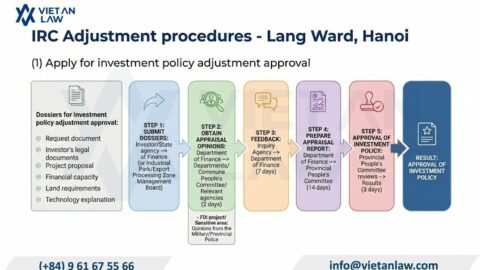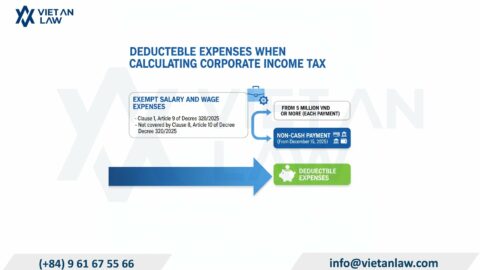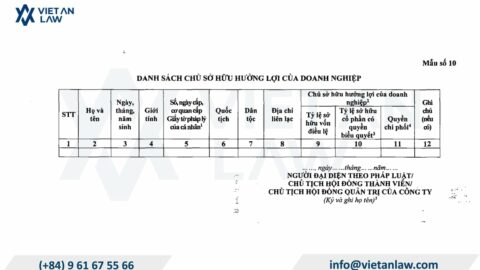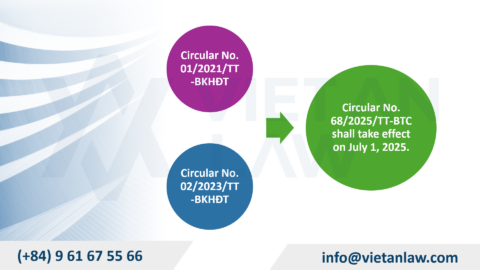Personal income tax is a significant financial obligation that every individual with taxable income needs to fulfill. However, according to current laws, not all income is taxable. In 2025, there are a number of tax-exempt incomes, which help people reduce their financial burden and encourage savings, investments, or assistance in special situations. Viet An Tax Agent will take a look at 04 typical incomes that are not subject to personal income tax in 2025, that you should know to apply correctly and legally. In particular, from October 1, 2025, a number of tax-free incomes will be added.
Table of contents
Personal income tax (PIT) is a type of direct tax, applied to individuals who generate income in excess of the taxable threshold as prescribed by law. This is the amount of money that income earners must pay into the state budget in order to contribute fairly to the distribution of income and ensure revenue sources for public activities of the State.
Taxable income can come from many sources such as:
However, the law also stipulates a number of tax-exempt incomes to create conditions for people to stabilize their lives, encourage investment, save or support in special circumstances. The proper fulfillment of tax obligations is not only the responsibility of each individual but also contributes to the sustainable development of the country’s economy.
According to the provisions of Articles 2 and 3 of the Law on Personal Income Tax 2007 (amended and supplemented in 2012 and 2014), the subjects subject to personal income tax in 2025 include:
According to Clause 1, Article 3 of Circular 111/2013/TT-BTC stipulating income exempt from personal income tax, there are 16 items. Among the 16 incomes that are exempt from personal income tax according to current regulations, there are 4 common and common items in practice that businesses need to pay special attention to.
According to the provisions of the Law on Personal Income Tax and guiding documents, income from real estate transfer (including houses and construction works to be formed in the future under the law on real estate business) between people with close family relations will be exempt from personal income tax. Family relations are understood as blood relations or marital relations including:
The tax exemption in this case does not distinguish the transfer value, as long as the transaction complies with the provisions of law and there are sufficient documents proving the kinship relationship. This policy is humane, in order to create favorable conditions for the donation and transfer of property within the family without incurring tax burdens.
In particular, in case real estate (including houses formed in the future, construction works under construction) is common property created during the marriage period, if the husband and wife divorce and divide the property according to the agreement or decision of the court, the income from the division of this property is also exempt from personal income tax. This is a policy that demonstrates the flexibility and humanity of the tax law on issues related to marriage and family life.
According to the law on personal income tax, an individual who transfers houses, residential land use rights and assets attached to residential land will be exempt from personal income tax if at the time of transfer, that individual only owns one real estate for the purpose of living in Vietnam. However, in order to enjoy this tax exemption policy, the transferor needs to simultaneously meet all the following conditions:
Individuals who are assigned land use rights by the State are not required to pay land use levies or are exempted or reduced from land use levies under preferential policies (such as policies for people with meritorious services, poor households, extremely difficult areas, etc.) will not have to pay personal income tax on the value of land use rights that are exempted or not paid. This is one of the regulations that shows the humanity and support of the tax law for disadvantaged subjects or social policies.
However, it should be noted: if the individual subsequently transfers the right to use this land area, the income from the transfer must still declare and pay personal income tax according to the provisions of Article 12 of Circular 111/2013/TT-BTC, amended and supplemented by Article 17 of Circular 92/2015/TT-BTC. This means that the tax exemption only applies to the original value of land use rights, while income arising from the transfer (if any) is still taxable.
Income from inheritance or gifts of real estate (including houses, residential land and construction works formed in the future in accordance with the law on real estate business) will be exempt from personal income tax if the transaction takes place between members of the same family who are related by blood or marriage. Specifically, including:
This tax exemption is applied regardless of the value of the real estate donated, donated or inherited, as long as the parties have sufficient documents proving the kinship relationship and comply with the procedures prescribed by law. This is a humane policy, to support the transfer of assets within the family without unnecessary tax obligations.
Supplement PIT exempt income from 01/10/2025
Pursuant to Clause 2, Article 71 of the Law on Science, Technology and Innovation 2025 (effective from October 1, 2025), Clauses 18, 19 and 20 have been added after Clause 17, Article 4 of the Law on Personal Income Tax 2007 stipulating additional incomes eligible for PIT as follows:
If you have any difficulties or questions related to 04 incomes not subject to personal income tax in 2025, please contact Viet An Tax Agent for the most specific advice.




